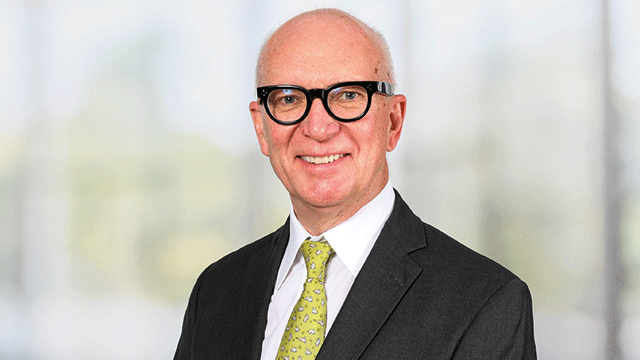GPE will continue with sale of assets
Great Portland Estates is planning to be a net seller for another two years, according to chief executive Toby Courtauld.
The sale of the assets, which GPE considers long-dated and at the end of what can be done to create additional value from them, could rake in around £455m for the firm over the next 18 to 24 months.
Courtauld said GPE would also be unlikely to buy any new assets, which he considers to be overpriced at present, but instead would invest in the assets it already holds, which “should create high rates of return”.
Great Portland Estates is planning to be a net seller for another two years, according to chief executive Toby Courtauld.
The sale of the assets, which GPE considers long-dated and at the end of what can be done to create additional value from them, could rake in around £455m for the firm over the next 18 to 24 months.
Courtauld said GPE would also be unlikely to buy any new assets, which he considers to be overpriced at present, but instead would invest in the assets it already holds, which “should create high rates of return”.
“We need to make a return on every pound we invest, whether it be internally or externally,” he said, adding that at the moment “no one needs to sell, or [they] want top dollar – and we don’t think some of those assets are worth top dollar”.
The West End property firm instead has committed to three new schemes from its 16-strong development pipeline, which Courtauld said would require £240m of investment.
The schemes are 76 Oxford Street, where hoardings have just gone up, its joint venture at Hanover Square and the 1.1-acre site in Whitechapel, E1, it acquired from Hermes Investment Management for £49.6m last June.
The gross development value of the three schemes is £744m. In addition, the company expects to submit four planning applications for further projects over the course of the next year.
For the past three months, GPE has also been trialling short-term, flexible lettings within fully fitted-out office space at a building in Midtown.
A further 100,000 sq ft of space had been identified across GPE’s portfolio where it is likely to roll out its short–term, flexible lettings.
Serviced space is a crucial part of the office space mix in London – but don’t expect to see a WeWork or TOG operating out of a GPE building, Courtauld added.
“Why should we give up profit by not operating it ourselves?” he said, adding that GPE can charge a premium of 35% to net ERV.
In its latest full-year results, the developer reported net asset value per share growth of 5.8% in the year to 31 March, with earnings per share rising by 17.9%.
The firm also posted a pretax profit of £76.7m, up from a loss of £140.2m in the previous year.
Its portfolio valuation grew by 2.9% during the year and it reported yield contraction of 10bp.
Rental values were up by 0.3% on the previous year. Rental value growth guidance for the new financial year is in the range +1.0% to -2.5%.
Net assets stood at £2.4bn, down from £2.7bn in 2017.
New lettings
GPE made 68 new lettings totalling 469,700 sq ft over the course of the financial year, securing annual income of £31.1m.
Subsequently, it has raised its final dividend by 14.1%.
Courtauld said he was planning for “continued economic uncertainty”, but that he looked to the future with “confidence”.
“Although we can expect a softening in market rents and some secondary asset yields, occupier demand remains healthy across our retail and office portfolio.”
Elsewhere, non-executive chairman Martin Scicluna has informed the board that he intends to retire at or before the company’s AGM in 2019. He has served on the board for more than nine years.
The developer said the search process for a new chairman is under way, led by senior independent director Charles Philipps and the nomination committee.
Non-executive director Jonathan Short will retire from the board on 5 July, at the company’s 2018 AGM.
To send feedback, e-mail Louise.Dransfield@egi.co.uk or tweet @DransfieldL or @estatesgazette










